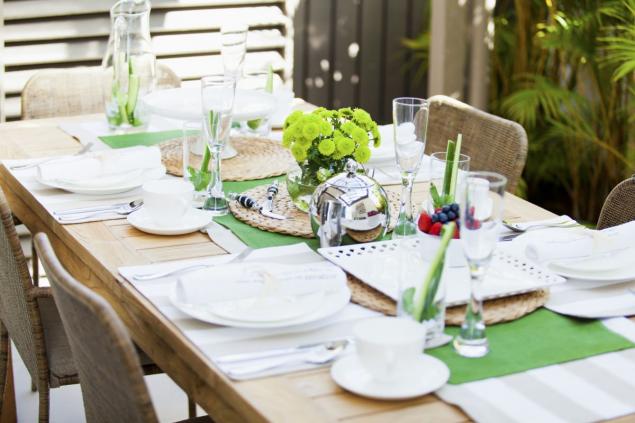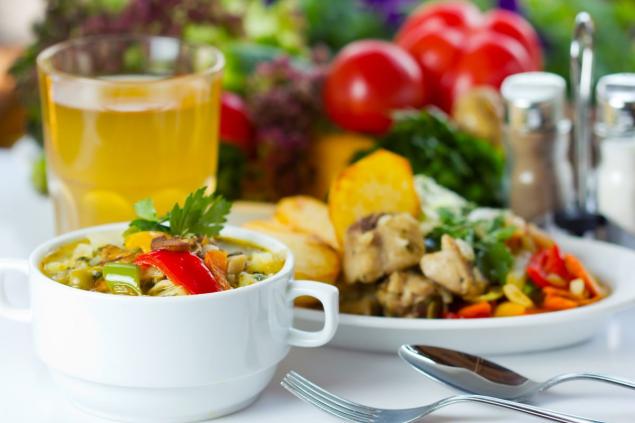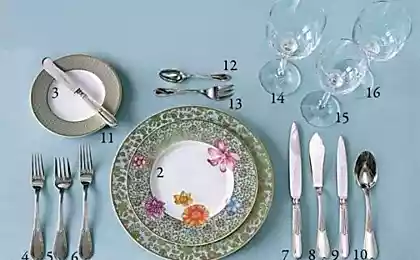156
Why housewives massively stop serving the table
Serving the table for lunch has long been considered an integral part of table etiquette. Housewives around the world to this day willingly compete in which table is more elegant. Moreover, serving the table is sometimes given even more attention than cooking the dishes themselves. And that raises the question, "Why?"

Today we want to share with you the reflections of a hostess who is outraged that the tradition of decorating the table with various tinsels has not yet outlived itself, and ask what you think about this. Will you share your thoughts in the comments?
I've long since given up all those pre-dinner decorations. Now no staged glasses or silverware sets. Only the necessary devices. That's why, for example, all these table knives? After all, you can cut everything immediately before putting it on plates.

Another thing I don't understand. Why bother with changing dishes and bring home in turns the first, then the second? Maybe someone likes to play the role of a waiter every day, and I already have enough worries.

I immediately serve soup and mashed meatcake and salad on the table. A husband and children choose what to do first. If the soup is too hot, take the second. If there is no second one (although this is rare), they are satisfied with snacks.

Before, to be honest, I tried to be more helpful. As soon as my husband finished eating one dish, I immediately blew up from my seat and replaced the empty plate with the next. It's the same with children. And then I got bored. When I once again had to reluctantly finish my cold porridge alone, I decided it was time to change something. And in general, since then I believe that a woman is contraindicated to sacrifice herself in the family.

Now we have a partial self-service rule in the house. I can cook something and invite everyone to eat, but everyone cleans up after themselves. If I don’t have time to cook, the baton goes to my husband.

Do you set the table for lunch? What do you think about the approach of our heroine to the issue of holding a family feast?

Today we want to share with you the reflections of a hostess who is outraged that the tradition of decorating the table with various tinsels has not yet outlived itself, and ask what you think about this. Will you share your thoughts in the comments?
I've long since given up all those pre-dinner decorations. Now no staged glasses or silverware sets. Only the necessary devices. That's why, for example, all these table knives? After all, you can cut everything immediately before putting it on plates.

Another thing I don't understand. Why bother with changing dishes and bring home in turns the first, then the second? Maybe someone likes to play the role of a waiter every day, and I already have enough worries.

I immediately serve soup and mashed meatcake and salad on the table. A husband and children choose what to do first. If the soup is too hot, take the second. If there is no second one (although this is rare), they are satisfied with snacks.

Before, to be honest, I tried to be more helpful. As soon as my husband finished eating one dish, I immediately blew up from my seat and replaced the empty plate with the next. It's the same with children. And then I got bored. When I once again had to reluctantly finish my cold porridge alone, I decided it was time to change something. And in general, since then I believe that a woman is contraindicated to sacrifice herself in the family.

Now we have a partial self-service rule in the house. I can cook something and invite everyone to eat, but everyone cleans up after themselves. If I don’t have time to cook, the baton goes to my husband.

Do you set the table for lunch? What do you think about the approach of our heroine to the issue of holding a family feast?
In the house of a wealthy friend found soap that does not sour in the soapbox
Why in the USSR there were no problems with fatness, and all were sonorous and slim























